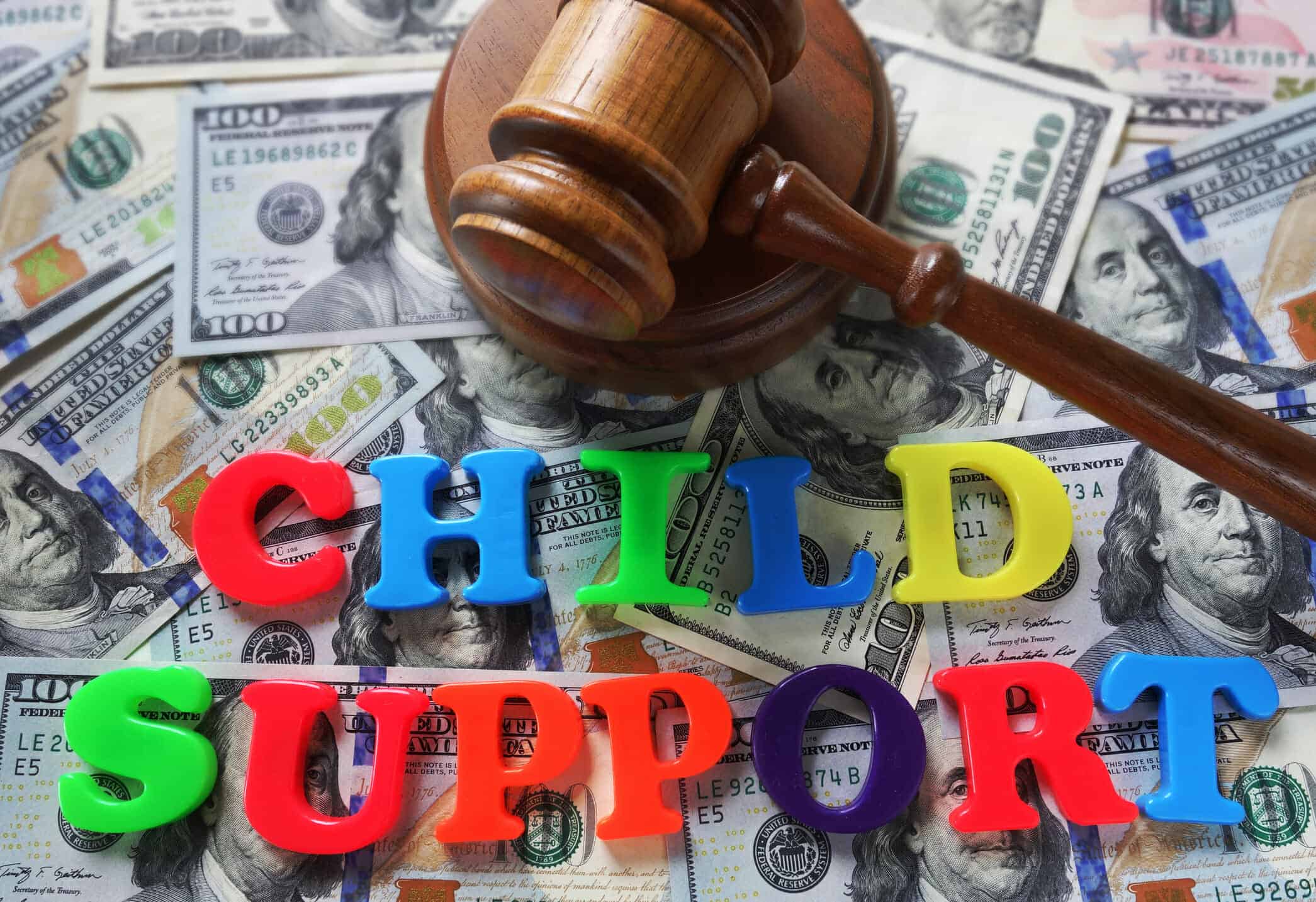Are you facing divorce and wondering how it works? More specifically, are you wondering what you have to do to get a divorce in Illinois?
Since divorce law is state specific, to get through the divorce process in Illinois you have to be familiar with Illinois divorce law. While you certainly don't need to know as much about Illinois divorce law as your lawyer, it helps to at least know the basics.
Here's what you need to know if you want to get a divorce in Illinois.

Contents
- The Most Important Thing You Need to Know to Get a Divorce in Illinois;
- The New Illinois Divorce Laws;
- Grounds for Divorce in Illinois;
- Illinois Divorce Process Options;
- Alimony in Illinois;
- Divorce and Children in Illinois;
- Illinois Child Support and Child Expenses;
- Answers to Basic Questions About How to Get a Divorce in Illinois.

1. The Most Important Thing You Need to Do to Get a Divorce in Illinois (… or anywhere else!)
The single most important thing you need to do if you want to get a divorce in Illinois (or anywhere else for that matter) is to be prepared.
The more prepared you are for what lies ahead, the better you’re likely to do. Period.
Being prepared, however, encompasses a lot of different things.
Being prepared for your divorce means, first and foremost, that you have a clue about how the divorce process works. It may sound cliché, but knowledge is power.
You have to know what your legal rights and responsibilities are. You have to understand your personal financial situation and how your finances work. It will also be important to know at least a little bit about the way that taxes will affect your divorce settlement. That way, you can be confident that you’ll actually end up with the amount of money you expected from your divorce settlement.
Even more importantly, you need to understand what issues you have to sort out with your spouse in order to parent your kids after your divorce. If you’re like most parents, you’ll also want to investigate the ways you can minimize the negative effects of divorce on your children. (Btw, this is going to apply to your adult children, too!)
You’re also going to need to prepare YOURSELF for the drama of divorce.
No matter how amicable you would like your divorce to be, there are always bumps in the road. Making sure you have enough support as you go through your divorce will be critical if you want to get through your divorce with the least amount of drama and destruction possible.
Finally, being prepared will also require you to have at least some basic knowledge about how the divorce system in Illinois works. The more you know about how the divorce process in Illinois works, the less frustrated you will be as you’re slogging your way through it.

2. The New Illinois Divorce Laws
Illinois divorce law has changed dramatically in the past decade. The laws regarding child custody (which doesn’t exist in Illinois anymore!) child support, and maintenance are all very different now than they were a few years ago. The grounds for divorce are different.
If you want to get a divorce in Illinois today you have to understand what the new Illinois divorce laws are, and how they work.
The most important changes to Illinois divorce law that you need to know about fall into 5 main categories:
- Grounds for Divorce;
- The Illinois Divorce Process (i.e. The Different Ways You Can Get Divorced);
- Alimony in Illinois (a/k/a Maintenance or Spousal Support);
- Parental Rights and Responsibilities in Illinois; and
- Illinois Child Support and the Payment of Certain Expenses for Your Children.
3. Grounds for Divorce in Illinois
The ONLY ground for divorce in Illinois is now irreconcilable differences.
If you and your spouse agree that you have irreconcilable differences, you can get a divorce in Illinois any time. There is waiting period IF you and your spouse both agree to get a divorce.
If you and your spouse DON’T agree that you have irreconcilable differences, then you may have to be separated for six months before you can get a divorce.
After you’ve been separated for six months, though, the law presumes that you have irreconcilable differences. That means that – whether you agree or not – your divorce can be processed after you’ve been separated for six months.
The bottom line is that if your spouse wants a divorce, you CAN’T stop it.
You can make your divorce take longer. You can make your divorce cost more. But, in the end, if your spouse wants a divorce, it doesn’t matter what you want. You will be divorced.

4. Illinois Divorce Process Options
There are many different ways to get a divorce in Illinois.
Litigation is the traditional way to get a divorce in Illinois. In litigation you use the court process to get divorced. You go through the court system to discover financial information. You work within the system to negotiate a settlement. If you can’t settle, you go to trial and a judge decides your divorce for you.
Mediation is another common Illinois divorce process. In mediation, a trained mediator helps you and your spouse resolve your divorce issues together. You can mediate your entire divorce, or you can mediate a portion of your divorce. You can also mediate with or without lawyers present.
Collaborative Divorce is a very specific out-of-court divorce process. In Collaborative Divorce specially trained divorce professionals guide you and your spouse to make the best possible choices for yourselves and your family. In Collaborative Divorce Process everyone signs an agreement that, if you and your spouse start fighting in court, the Collaborative Process is over. You then need to secure new attorneys to represent you and fight in court.
Divorce arbitration is another divorce option in Illinois. Arbitration is similar to litigation, but your case is heard by a private arbitrator rather than a judge. As with mediation, you can arbitrate your entire divorce, or you can arbitrate just a single issue or two. While divorce arbitration traditionally hasn’t been used as much in Illinois as in other states, it’s growing in popularity and may be available, depending on where in the state you live.
Finally, Illinois also has a special divorce process for lower income couples called a Joint and Simplified Divorce. If you and your spouse agree on everything, have no real estate, no kids, a small income and relatively few assets, you may qualify for a joint and simple divorce.
5. Alimony in Illinois
In Illinois “alimony” is known as “maintenance.”
Getting maintenance in Illinois is a three-step process. (That is to say that, according to the law, it is supposed to be a three-step process. But many times everyone skips Step 1 and goes right to Steps 2 and 3.)
Step #1. You have to figure out whether maintenance is appropriate in your divorce. To make this determination, the court will look at a variety of different factors. These factors include the length of your marriage, each spouse’s earning capacity, each spouse’s income and property and more. (To get the full list of factors the court relies on in deciding whether maintenance is appropriate, CLICK HERE.)
Step #2. If spousal support is appropriate in your case, then the judge will apply a formula (called “guideline maintenance”) to determine how much maintenance/support should be paid. This formula is based upon each spouse’s net income.
Step #3. The judge will also apply a formula to determine how long maintenance should be paid for. This formula is based upon the length of the marriage. In marriages that lasted over 20 years, maintenance can be awarded for an indefinite period of time.
Calculating how much maintenance/spousal support should be paid, and the length of time it should be paid for is extremely complicated. Most lawyers and certified divorce financial planners run these calculations using special computer programs.
While there are Illinois maintenance calculators available online, they are best used to provide a rough estimate of how much maintenance you may have to pay or may receive in your divorce. To get a more accurate idea of what spousal support will look like in your case, it’s always best to consult with a good Illinois divorce lawyer.

6. Divorce and Children in Illinois
Child-related divorce issues are somewhat different in Illinois than in most other states. That's because Illinois has abolished the terms “custody” and “visitation” and replaced them with the concept of “Parental Responsibilities.”
There are 2 main areas of “parental responsibilities” that divorcing parents in Illinois must consider. They are:
- Decision Making regarding the children. Parents can either share the decision-making responsibilities for their children. (This used to be known as joint legal custody.) Or one parent can have complete decision-making responsibility in a particular area. (This used to be known as sole legal custody.)
There are 4 areas of decision-making that parents are responsible for. Those are decisions surrounding their children’s:
- Education;
- Religion;
- Health Care; and
- Extracurricular activities.
- Parenting Time. Parenting time (formerly “visitation”) is the time that each parent gets to spend with their children after their divorce. Under Illinois law, parenting time is allocated based on the best interests of the children. Parenting time encompasses regular time parents spend with their kids, as well as holiday and vacation time.

7. Illinois Child Support and Child Expenses
Illinois Child Support
For the most part, child support in Illinois follows a guideline formula. The court has the discretion to grant more or less child support than what the guideline formula prescribes. But, most of the time, the courts will follow the guideline formula.
Before July 1, 2017, Illinois child support was calculated based on a percentage of the paying spouse’s net income. That has now changed.
Illinois child support is now calculated based upon BOTH parent’s net incomes. The guideline child support formula can also be adjusted depending upon how much time a child spends with the paying parent.
If a child spends more than 146 overnights per year with the parent who is paying Illinois child support, then the child support payment is adjusted downwards. The reason for this is that the parent who is paying child support also needs to support the child during those 146 overnight visits.
Calculating Illinois child support is now fairly complicated. Most Illinois divorce lawyers calculate child support using special computer software. If you would like to try to calculate your own child support, you can try using the Illinois Child Support Estimator.
When using the estimator, remember that the child support number you calculate there is only an estimate! Your actual child support numbers may vary depending upon a number of factors, including whether you used the proper amount of gross income and whether you used the standardized or individualized tax amount.
The best way to get an accurate idea of how much child support you may owe or receive is to check with an Illinois divorce attorney or an Illinois Divorce Financial Analyst in your area.
The Payment of Children’s Expenses in Illinois
In addition to paying child support, a court may order Illinois parents to pay the following additional expenses for their children:
- Medical Insurance;
- Medical/Healthcare Expenses not covered by Insurance;
- Extracurricular Activities and School Expenses; and
- Child Care Expenses.
College Expenses in Illinois
In Illinois, parents also have an obligation to contribute toward the payment of their children’s college education expenses. Those expenses include:
- Tuition and fees (this cost can not exceed the cost of in-state tuition and fees at the University of Illinois-Champaign Urbana);
- Housing expenses, whether on or off-campus (this cost this cost can not exceed the cost of a double-occupancy student room with a standard meal plan in a residence hall at the University of Illinois-Champaign Urbana);
- Medical insurance and medical expenses not covered by insurance;
- The reasonable cost of the child’s living expenses during school breaks; and
- Books and other necessary supplies.
